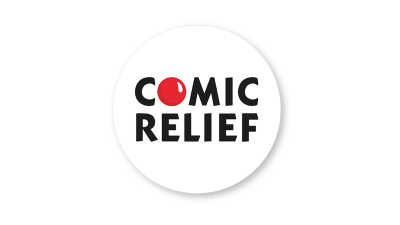
The Trustees of Comic Relief today announce that they have accepted all five recommendations made following a comprehensive review into the charity’s investment policy. The following changes outlined below are now being implemented.
Comic Relief will not make investments in companies that manufacture armaments or tobacco products or whose primary business is the manufacture of alcohol products;
Comic Relief has signed up to UN Principles for Responsible Investment as a sign of its commitment to responsible investment and to provide membership of a network of responsible investors from which Comic Relief can learn best practice, as well as becoming part of the Charities Responsible Investment Network (a similar network of responsible investors within the UK charity sector);
Comic Relief will be more transparent about its investments in published annual accounts, including publishing a list of funds, breakdown by asset class and specific investments over £5m. It will continue to publish the proportion of Comic Relief’s assets that are unallocated as grants (or allocated but yet to be paid out as grants);
Comic Relief will build stronger links between its Investment Committee and Trustees to ensure that Comic Relief’s strategy and investment policy are aligned, including all opportunities and appropriate risk assessment – this will include the addition of two Trustees to the Investment Committee;
Comic Relief will continue to set aside a small proportion of its capital for social investment, as it already does through grant making and in its investment portfolio.
The review of Comic Relief’s investment policy took place after public concerns were raised about its investment portfolio in December 2013.
The review panel – led by an independent Chair, John Kingston OBE, with Andrew Hind CB FCA as a second independent member along with key internal contributors – recommended that Comic Relief’s investment policy should reflect its vision, and that the overriding focus of the new investment policy should be to do good rather than merely preventing doing harm.
Comic Relief’s decision to exclude companies that manufacture armaments or tobacco products or whose primary business is the manufacture of alcohol products follows the Investment Review panel’s advice that they should “aim for only a small number of absolute prohibitions” in order to “avoid an excessive reduction in the universe available for investment”.
The decision to exclude these areas results from an analysis examining controversial sectors against three criteria: Comic Relief’s vision of a just world, free from poverty, its grant-making programme, and public opinion. These exclusions will be reviewed every six months.
All funds from the sections of Comic Relief’s investment portfolio that could have included shares in alcohol, tobacco and arms companies were removed while the review was taking place.
Tim Davie, Chair of Comic Relief said:
“This was an excellent piece of work by the review panel and I’m pleased to accept all five recommendations in full. Public trust is the cornerstone of Comic Relief and we would be nothing without our many supporters to whom we have listened and will keep listening. We now have an investment policy that is firmly in line with the ethos of the charity, at the same time as making sure that the money we raise can go further to change lives both here in the UK and abroad.”
John Kingston OBE, Chair of the Investment Review panel, said:
"I was pleased to chair Comic Relief's Investment Review Panel. This is both an important and a complex area, and I am glad that the Trustees accepted all our recommendations. I hope the Report will help other charities as they consider similar investment policy issues."
Review Panel
The review was conducted by an independent chair, John Kingston OBE (Chair of the Association of Charitable Foundations; Non-Executive Director of Big Society Capital; and Trustee of Help Age International), with another independent member Andrew Hind CB FCA (Professor of charity governance and finance at Cass Business School; Editor of Charity Finance magazine; Chief Executive of the Charity Commission from 2004-2010), as well as three Comic Relief Trustees: Mike Harris, Diana Barran MBE and Harry Cayton OBE.
Contributors
The following people attended meetings of the Investment Review panel to contribute to the review:
Emilie Goodall & Sagarika Chatterjee – UN Principles for Responsible Investment
Stephen Lloyd, Partner and Senior Counsel – Bates Wells Braithwaite
James Fetherby, Chair – Church of England Ethical Investment Advisory Group
Claire Brown, Finance & Investment Director – The Esmeé Fairbairn Foundation
Catherine Howarth, CEO – ShareAction
Devin Thomas, Rob Hardy & Hugo Alexander – JP Morgan
Coleman Long – Cambridge Associates
N.B. Comic Relief’s Directors were also consulted in a separate meeting with the Chair.
Written submissions were sent to the panel by:
Alquity
CCLA
The Esmeé Fairbairn Foundation
RE Commodities
Acrewoods
ShareAction
Big Society Capital
Asset Risk Consultants
Financial Architecture
Ethical Consumer
Kate Rogers of Charity Investors' Group and Schroders (via a call with Colin Simon, Business Director at Comic Relief)
Comic Relief staff and the public were consulted through qualitative research carried out by Kindling Strategy.
All of these submissions were made pro bono and contained informal opinions rather than professional advice.


